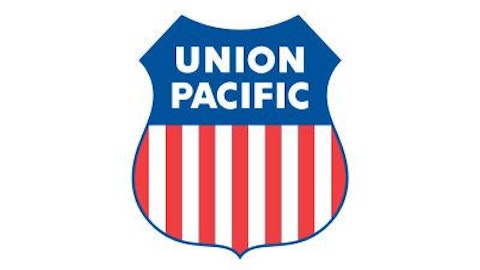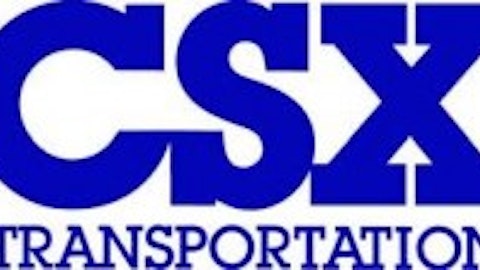 Billionaires Warren Buffett and Bill Ackman have helped make investors serious money in the railroad industry over the past couple of years. If you missed these opportunities while trying to navigate the financial crisis, never fear: There’s still time to get in on the next great railroad investment.
Billionaires Warren Buffett and Bill Ackman have helped make investors serious money in the railroad industry over the past couple of years. If you missed these opportunities while trying to navigate the financial crisis, never fear: There’s still time to get in on the next great railroad investment.
Back in 2010, Buffett took market leader BNSF private at a roughly 30% premium. Ackman went into activist mode at Canadian Pacific Railway in 2011 after Canada’s No. 2 rail company had grossly underperformed top peer Canadian National for a number of years. For the three years prior to Ackman’s Canadian Pacific stake, the stock was down 5%, while Canadian National was up nearly 70%.
Since Ackman got involved during mid-2011, Canadian Pacific has outperformed Canadian National four times. There’s definitely still money to be made in railways.
A similar opportunity is forming at Norfolk Southern Corp. (NYSE:NSC). The company has been essentially flat over the past five years and is in dire need of some activist-style improvements.
Norfolk Southern Corp. (NYSE:NSC)’s stock is up a mere 3% over the past five years. Compare this with top rival CSX, up 20%; Union Pacific Corporation (NYSE:UNP) and Kansas City Southern (NYSE:KSU), each up 100%; and Canadian National Railway (USA) (NYSE:CNI), up 85%. Even the S&P 500 index has grossly outperformed Norfolk, returning 25%.

Ackman’s key thesis at Canadian Pacific was that management issues were to blame for the company’s underperformance. He was instrumental in ousting CEO Fred Green and getting former Canadian National CEO Hunter Harrison appointed to the top seat.
A big positive for Norfolk Southern Corp. (NYSE:NSC) of late has been its own management shakeup. In June, James Squires took over as president, essentially separating the CEO and president roles. Current CEO Charles Moorman will now focus solely on operations, while Squires will take over managing strategy and planning. Well-managed railroads are afforded higher valuations, and this is a first step toward a higher valuation for Norfolk Southern Corp. (NYSE:NSC).
One hot-button topic is pollution, which Norfolk is looking to tackle. Earlier this year, Norfolk laid out its initiatives, which includes fuel efficient engines, and turning to battery- and biofuel-powered engines. Its long-term goal includes lowering its greenhouse emissions by 10% per mile before 2014.
While the more efficient engines will no doubt help with emissions, there are company-specific benefits that are not to be ignored. As these engines come into play, the company should start seeing material improvement in lower operating expenses.
What makes Norfolk Southern Corp. (NYSE:NSC) interesting is that with some slight improvements in the company, shareholders could easily be rewarded with share appreciation, and not just the industry-leading 2.7% dividend yield it pays.
Last quarter, Norfolk’s operating ratio (operating expenses divided by net revenue) came in at 70.2%, compared with CSX’s 68.6%. That might not seem like much, but it can be the difference of several million dollars over the course of a year. Norfolk and CSX have similar balance sheets, but CSX has a return on equity of 20%, while Norfolk is at 17%. Norfolk’s move toward more efficient engines and operations is a first step for lowering its operating ratio and boosting returns on equity.
One of Norfolk Southern Corp. (NYSE:NSC)’s biggest initiatives for boosting its top line is to promote the move from trucks to trains, hence the gaining strength of its intermodal segment. The coming online of its Crescent Corridor, an intermodal corridor connecting Louisiana and New Jersey, should only further help drive the trading in of trucks for trains. Helping exacerbate the growth in intermodal should be the double-stacking that Norfolk is implementing.






